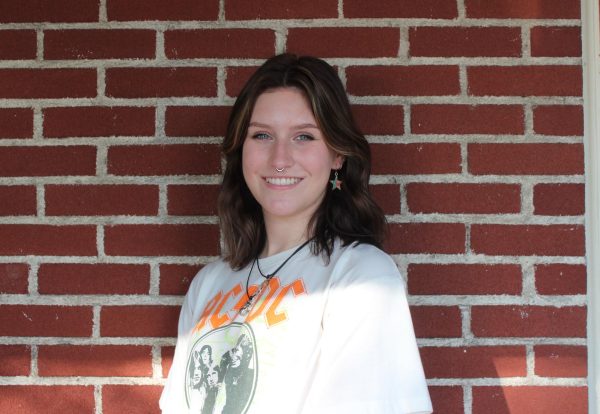On Thursday, Jan. 30, “The New Yorker” staff writer Kyle Chayka held a talk in collaboration with the Samek Art Gallery. Chayka’s focus on the influence of social media algorithms on culture fits perfectly with the Samek’s current exhibit in the ELC, “For You: The Comfortable Alienation of AI.” The central argument of Chayka’s talk was that algorithms have “flattened” culture, which draws from ideas in his book “Filterworld.”
Young people, including myself, are often tired of hearing the repetitive argument that “social media = bad” and begin to tune it out. Chayka’s critique of algorithms may come off as the same argument disguised in different words, perhaps leading to some initial resistance to his ideas. In reality, Chayka doesn’t want to critique the consumer’s online habits, he wants to instead critique the system and direct people in the direction of positive change for the sake of diversifying culture.
An example of this “flattened” culture that he gave was the “generic coffee shop.” He explained that no matter what city he went to, he could always find a “generic coffee shop” that possessed the same traits as the next one—plants, reclaimed wood furniture, cappuccino art and so on. He then raises the question of how this copy-and-paste aesthetic came to be and the answer is social media. Customer’s post photos of the visually appealing location and when those posts do well, so do the coffee shops.
One of his presentation methods that made Chayka’s ideas so palatable was his ability to level with and relate to the audience. He uses this coffee shop example partially because he’s seen the evidence of it in his own life. He reveals to the audience his countless and nearly identical photos of coffee art that he has taken in these “generic coffee shops,” showing that he’s just as guilty as the next person.
He went on to give examples of other real-life trends that succeeded because of how successful they were online. For example, that eye-catching neon sign embedded in a plant wall found in just about any modern cafe, restaurant, or bar. At the mention of this example, I sort of laughed to myself, looking down at my phone’s lock screen that featured a photo of exactly that. Chayka’s guilty of it, I’m guilty of it, we’re all guilty.
And that’s okay! Enjoying popular things on social media doesn’t make us bad or boring people. But it can make our culture boring, which is exactly what Chayka hopes acknowledging these trends can help to change. The homogenization of culture has always existed, but algorithms and artificial intelligence have accelerated it in brand new ways. Especially with AI feeding off of existing content, we run the risk of falling into a stagnant culture where nothing is ever really “new;” it’s just a slight variation of the last successful trend. Chayka fears that a post-AI world can lead to “the death of the finite object” and that “the intention of the artist [won’t be] the end product anymore.”
In order to resist this pitfall, Chayka has a couple suggestions to help us “exit Filterworld.” One is to pursue more niche platforms to cultivate culture in a less “filtered” way, giving examples of platforms such as Discord and Letterboxd. Another change Chayka advocates for is a shift away from automated algorithms and towards human curation. Sure, Spotify could tell you what it thinks you’d like to listen to, but you could just as well seek discussion in an online community in order to discover new music.
Lastly, Chayka also calls for more government regulation—and no, this doesn’t mean a government shutdown of TikTok again. Overall, as we’ve learned through plenty of press coverage and legal pursuits, everyone wants your data. You may not think much of it, but your data is precisely what feeds these algorithms. So while we wait for some positive governmental regulation to roll out, maybe avoid blindly accepting those cookies, unless they’re from Grandma.




















